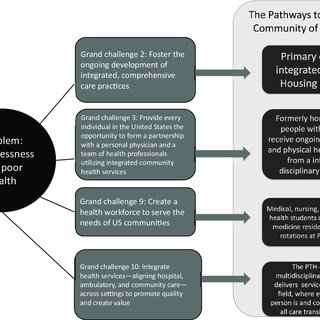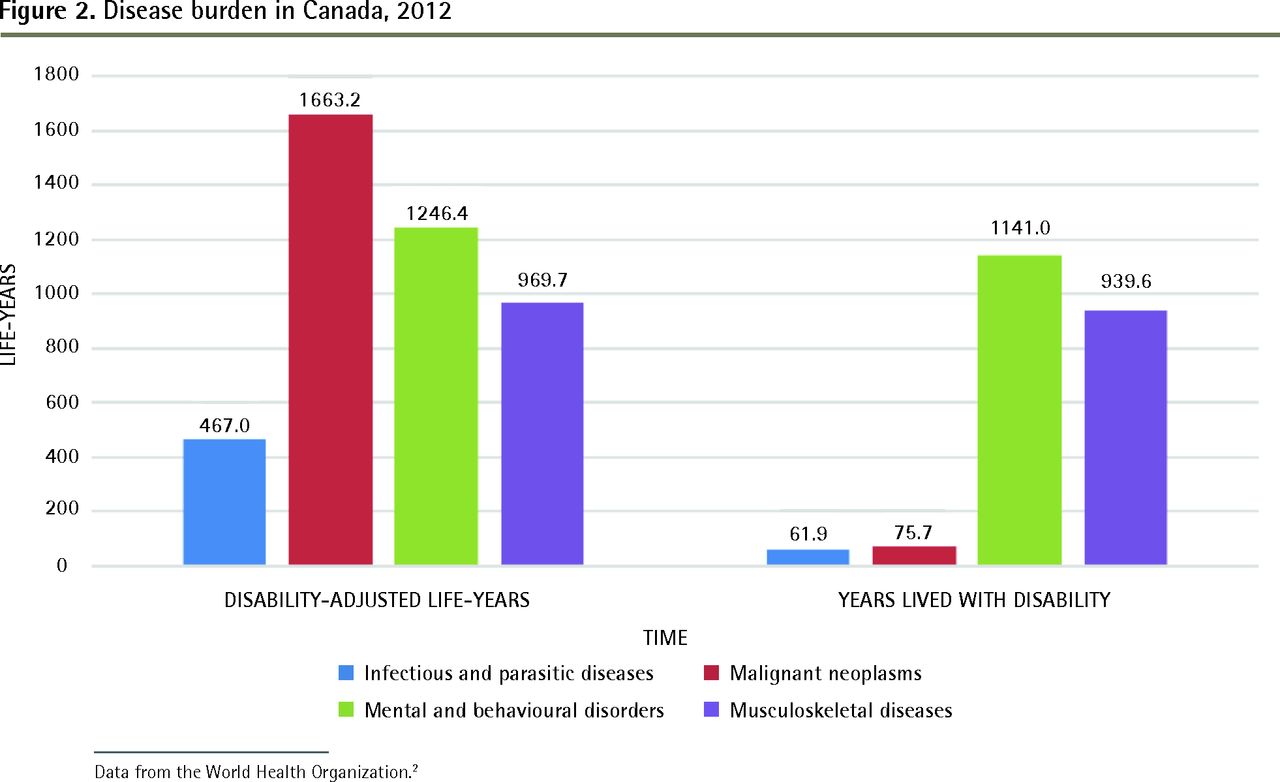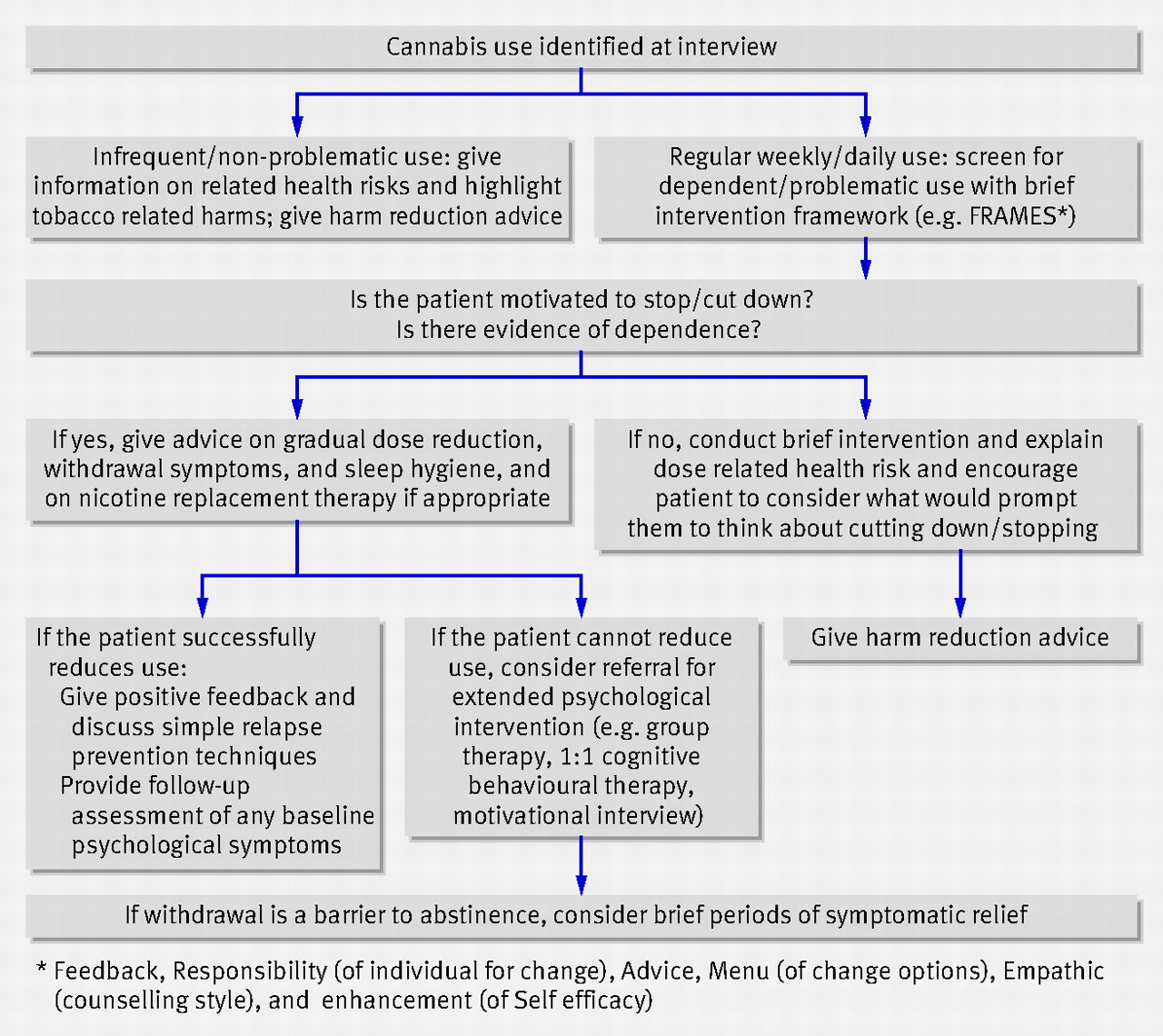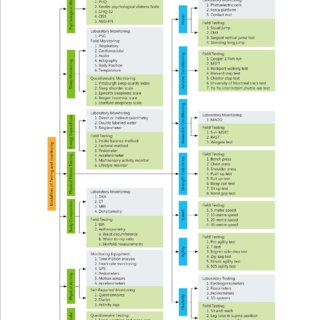Primary care evaluation of mental disorders pdf Big Trout Lake

Primary Care Evaluation of Mental Heath Disorders (PRIME-MD) Spitzer RL, Williams JB, Kroenke K, Linzer M, deGruy FV, 3rd, Hahn SR, Brody D, Johnson JG. Utility of a new procedure for diagnosing mental disorders in primary care.
Primary Care Evaluation of Mental Heath Disorders (PRIME-MD)
CLINICALREPORT Identification and Evaluation of Children. health disorders were seen by their pediatric primary care physician.16,17 Primary care pedi- atricians diagnosed increasing percentages of children with mental health problems during the 25-year period from 1970 to 1996, from 6.8% of children aged 4 to 15 years in 1979, Eating Disorders Toolkit for Primary Care and Adult Mental Health Services Sheffield Health & Social Care NHS Foundation Trust Page 2 of 30 Table of Contents.
Mental disorders are highly prevalent in the primary care setting, yet are frequently misdiagnosed and often inappropriately treated. The presence of unrecognized or misdiagnosed mental disorders is associated with increased service utilization and health care costs, and can significantly impact the patient’s quality of life and risk of suicide. ORIGINAL PAPER The Patient Assessment of Chronic Illness Care Questionnaire: Evaluation in Patients with Mental Disorders in Primary Care J. Gensichen • A. Serras • M. A. Paulitsch•
health care used by over one-third of patients with a mental disorder accessing the health care system. As health care reform focuses on a central role for primary care in the delivery and Mental disorders in primary care are common, disabling, costly, and treatable. 1-5 However, they are frequently unrecognized and therefore not treated. 2-6 Although there have been many screening instruments developed, 7,8 PRIME-MD (Primary Care Evaluation of Mental Disorders) 5 was the first instrument designed for use in primary care that
Eating Disorders Toolkit for Primary Care and Adult Mental Health Services Sheffield Health & Social Care NHS Foundation Trust Page 2 of 30 Table of Contents The objective of this study is the comparison of the German version of the Primary Care Evaluation of Mental Disorders (PRIME-MD), a short structured diagnostic instrument, with the Composite
Eating Disorders Toolkit for Primary Care and Adult Mental Health Services Sheffield Health & Social Care NHS Foundation Trust Page 2 of 30 Table of Contents health care used by over one-third of patients with a mental disorder accessing the health care system. As health care reform focuses on a central role for primary care in the delivery and
Involving the employer to enhance return to work among patients with stress-related mental disorders – study protocol of a cluster randomized controlled trial in Swedish primary health care. BMC Public Health, Vol. 18, Issue. 1, MEASUREMENTS AND MAIN RESULTS Measurements were two questions from the Primary Care Evaluation of Mental Disorders patient questionnaire, both the long and short forms of the Center for
hospitals, rather than on effective treatment through primary health care, community-based care, and short-term hospital care near to where people live. Treating mental disorders as early as possible, holistically and close to the person’s home and community Spitzer RL, Williams JB, Kroenke K, Linzer M, deGruy FV, 3rd, Hahn SR, Brody D, Johnson JG. Utility of a new procedure for diagnosing mental disorders in primary care.
Mental disorders are highly prevalent in the primary care setting, yet are frequently misdiagnosed and often inappropriately treated. The presence of unrecognized or misdiagnosed mental disorders is associated with increased service utilization and health care costs, and can significantly impact the Autism Spectrum Disorders: A Resource Toolkit for Clinicians,” which contains screening and surveillance tools, practical forms, tables, and parent handouts to assist the pediatrician in the identification, evaluation, and management of autism spectrum
The aims of a general psychiatric evaluation are 1) to establish whether a mental disorder or other condition requiring the attention of a psychiatrist is present; 2) to collect data sufficient to support differential diagnosis and a comprehensive clinical formulation; 3) to collaborate Mental disorders are highly prevalent in the primary care setting, yet are frequently misdiagnosed and often inappropriately treated. The presence of unrecognized or misdiagnosed mental disorders is associated with increased service utilization and health care costs, and can significantly impact the patient's quality of life and risk of suicide.
Assessment Jose Silveira MD FRCPC Assistant Professor, Department of Psychiatry, University of Toronto Clinical Director, Portuguese Mental Health and Addiction Services University Health Network Patricia Rockman MD, CCFP, FCFP Assistant Professor University of Toronto Department of Family and Community Medicine Chair, OCFP Collaborative Mental Health Care Network. Objectives … Preventing mental illness: a primary care approach , regular checkups with primary care physicians usinig simple to use, short assessment tools that screen for risks and symptoms could prevent the development of mental illness through behavioral
Diagnosing Mental Health Disorders in Primary Care: Evaluation of a New Training Tool by Rachel Satter A Dissertation Presented in Partial Fulfillment Spitzer RL, Williams JB, Kroenke K, Linzer M, deGruy FV, 3rd, Hahn SR, Brody D, Johnson JG. Utility of a new procedure for diagnosing mental disorders in primary care.
Europe PMC. The aims of a general psychiatric evaluation are 1) to establish whether a mental disorder or other condition requiring the attention of a psychiatrist is present; 2) to collect data sufficient to support differential diagnosis and a comprehensive clinical formulation; 3) to collaborate, nation can help distinguish between mood disorders, thought disorders, and cognitive impairment, and it can guide appropriate diagnostic testing and referral to a psychiatrist or other mental.
Quick Guide to PRIME-MD Patient Health Questionnaire (PHQ

PHN Primary Mental Health Care Flexible Funding Pool. assessment and management of cannabis use disorders in primary care sulted primary care providers and specialists in addiction treatment. How does cannabis exert its effect? Metabolites of cannabis act on the body’s endogenous cannabinoid system via type 1 cannabinoid receptors (CB 1 receptors) in the central nervous system and CB 2 receptors peripherally. They may modulate mood, …, Preventing mental illness: a primary care approach , regular checkups with primary care physicians usinig simple to use, short assessment tools that screen for risks and symptoms could prevent the development of mental illness through behavioral.
Mental Disorders in Primary Care WHO World Health

Behavioral Health Integration in Pediatric Primary Care. Mental disorders in primary care: poorly studied and poorly understood. In light of this situation, it is paradoxical that mental disorders in primary care - and the way they are managed - remain poorly studied. With a few notable exceptions (see below), this statement applies to both the size of the problem (ie, frequency and type of mental disorders seen in primary care) and the more complex https://en.wikipedia.org/wiki/Primary_and_secondary_gain The assessment of mental disorders in primary health care clinics in the Gaza Strip - Volume 4 Issue 3 - Abdel-hamid Afana, Timraz Neda Skip to main content We use cookies to distinguish you from other users and to provide you with a better experience on our websites..

Barriers Identified Mental Health - specifically mood, anxiety, alcohol, and eating disorders. Number and Types of Questions Twenty-six 'yes' or 'no' questions and a 12-page clinical evaluation … mental health into primary care systems around the world. Worldwide, mental, behavioural and neurological disorders are major contributors to disability and premature death.
From the Primary Care Evaluation of Mental Disorders Patient Health Questionnaire (PRIME-MD PHQ). The PHQ was The PHQ was developed by Drs. Robert L. Spitzer, Janet B.W. Williams, Kurt Kroenke and colleagues. assessment and management of cannabis use disorders in primary care sulted primary care providers and specialists in addiction treatment. How does cannabis exert its effect? Metabolites of cannabis act on the body’s endogenous cannabinoid system via type 1 cannabinoid receptors (CB 1 receptors) in the central nervous system and CB 2 receptors peripherally. They may modulate mood, …
nation can help distinguish between mood disorders, thought disorders, and cognitive impairment, and it can guide appropriate diagnostic testing and referral to a psychiatrist or other mental Mental Health Services. Most people access mental health services through their general practitioner or primary care provider. However, some people who are seriously affected by their illness can contact or be referred to a specialist mental health service provided by Canberra Health Services.
primary care settings and improving the medical care of individuals with serious mental health problems and substance abuse in behavioral health settings are two growing areas of practice and study. assessment and management of cannabis use disorders in primary care sulted primary care providers and specialists in addiction treatment. How does cannabis exert its effect? Metabolites of cannabis act on the body’s endogenous cannabinoid system via type 1 cannabinoid receptors (CB 1 receptors) in the central nervous system and CB 2 receptors peripherally. They may modulate mood, …
Mental disorders in primary care are common, disabling, costly, and treatable. 1-5 However, they are frequently unrecognized and therefore not treated. 2-6 Although there have been many screening instruments developed, 7,8 PRIME-MD (Primary Care Evaluation of Mental Disorders) 5 was the first instrument designed for use in primary care that Journal of Clinical Psychiatry Primary Care Companion 2002; 4: 9-11. 3. Miller CJ et al, Sensitivity and specificity of the Mood Disorder Questionnaire for detecting bipolar disorder.
1 Annexure A1 – Primary Mental Health Care This Annexure is specifically related to the Primary Mental Health Care Activity and supplements the Primary … Mental disorders in primary care are common, disabling, costly, and treatable. 1-5 However, they are frequently unrecognized and therefore not treated. 2-6 Although there have been many screening instruments developed, 7,8 PRIME-MD (Primary Care Evaluation of Mental Disorders) 5 was the first instrument designed for use in primary care that
The objective of this study is the comparison of the German version of the Primary Care Evaluation of Mental Disorders (PRIME-MD), a short structured diagnostic instrument, with the Composite enhanced models of primary care, so that primary care teams are better equipped to address the wide range of mental health needs in general practice, and to meet the physical health care needs of people with long-term mental health problems – further strengthening mental health components of urgent and emergency care pathways in accident and emergency (A&E) departments and elsewhere
mental health disorders: identification and pathways to care’ (NICE clinical guideline 123) can be applied to the care of people presenting in primary care. Each scenario has been written by a different contributor with experience in this mental health into primary care systems around the world. Worldwide, mental, behavioural and neurological disorders are major contributors to disability and premature death.
Involving the employer to enhance return to work among patients with stress-related mental disorders – study protocol of a cluster randomized controlled trial in Swedish primary health care. BMC Public Health, Vol. 18, Issue. 1, Diagnosing Mental Health Disorders in Primary Care: Evaluation of a New Training Tool by Rachel Satter A Dissertation Presented in Partial Fulfillment
Screening for Psychiatric Disorders in Primary Care Jerry Halverson, MD; Carlyle Chan, MD Doctor Halverson is an assistant professor (CHS) in the Department of Psychiatry at the University of Wisconsin-Madison. Doctor Chan is professor and director of residency education in the Department of Psychiatry and Behavioral Medicine at the Medical College of Wisconsin, Milwaukee, Wis. … hospitals, rather than on effective treatment through primary health care, community-based care, and short-term hospital care near to where people live. Treating mental disorders as early as possible, holistically and close to the person’s home and community
Psychosocial assessment . in the perinatal period. A guide for primary care health professionals. WHAT IS PSYCHOSOCIAL ASSESSMENT? Psychosocial assessment is a process used by health . professionals to identify women who may be more vulnerable to developing or relapsing with a mental health disorder in the perinatal period. It also places mood disorders in context and provides a more in Primary Care Common Mental Disorders Depression. Identification of and Management of in Primary Care Common Mental Disorders Depression Evidence-based Best Practice Guideline. Statement of intent Evidence-based best practice guidelines are produced to help health care practitioners and consumers make decisions about health care in specific clinical circumstances. …
The primary care evaluation of mental disorders (PRIME-MD

Diagnosing Mental Health Disorders in Primary Care. Questionnaire 9) • Questionnaires (ASQ) • Checklist in Toddlers, Revised with Follow standardized screening Billing Guidelines for Developmental and Mental Health Screening and Assessment in Primary Care, assessment and management of cannabis use disorders in primary care sulted primary care providers and specialists in addiction treatment. How does cannabis exert its effect? Metabolites of cannabis act on the body’s endogenous cannabinoid system via type 1 cannabinoid receptors (CB 1 receptors) in the central nervous system and CB 2 receptors peripherally. They may modulate mood, ….
Information for primary health practitioners
Mental disorders in primary care PubMed Central (PMC). The Patient Health Questionnaire (PHQ) is a self-report version of the Primary Care Evaluation of Mental Disorders (PRIME-MD) diagnostic tool for common mental disorders. The PHQ-9 is a brief, 9-item scale that includes only the depression-related items from the PHQ. The PHQ-9 has been validated for use in primary care settings and can be used to make a tentative diagnosis of depression and to, Setting: Primary Care Population Method of Delivery: This instrument works favourably with trained mental health providers and includes both a questionnaire and interview. Description : This tool is designed to diagnose mental health problems in the primary care sector..
1 Brief assessment of perceived need for mental health care - development of an instrument for primary care use Project report submitted to beyondblue the National mental health disorders: identification and pathways to care’ (NICE clinical guideline 123) can be applied to the care of people presenting in primary care. Each scenario has been written by a different contributor with experience in this
21/07/2008 · Method: Outpatients waiting to see their physicians at 3 community family medicine sites were invited to complete a demographic survey and the Primary Care Evaluation of Mental Disorders Patient Questionnaire (PRIME-MD PQ). Involving the employer to enhance return to work among patients with stress-related mental disorders – study protocol of a cluster randomized controlled trial in Swedish primary health care. BMC Public Health, Vol. 18, Issue. 1,
Psychosocial assessment . in the perinatal period. A guide for primary care health professionals. WHAT IS PSYCHOSOCIAL ASSESSMENT? Psychosocial assessment is a process used by health . professionals to identify women who may be more vulnerable to developing or relapsing with a mental health disorder in the perinatal period. It also places mood disorders in context and provides a more 1 Brief assessment of perceived need for mental health care - development of an instrument for primary care use Project report submitted to beyondblue the National
health care used by over one-third of patients with a mental disorder accessing the health care system. As health care reform focuses on a central role for primary care in the delivery and Core competencies in primary mental health care - January 2018 3 Family doctors diagnose common mental health problems, including depressive disorders,
Regular screenings in primary care and other healthcare settings enables earlier identification of mental health and substance use disorders, which translates into earlier care. Screenings should be provided to people of all ages, even the young and the elderly. caregiver interviews, and Diagnostic and Statistical Manual of Mental Disorders, Fourth Edition criteria, (3) patient and family psychoeducation, (4) establishing relevant links in the community, and (5) the establishment of a safety plan.
1 Annexure A1 – Primary Mental Health Care This Annexure is specifically related to the Primary Mental Health Care Activity and supplements the Primary … caregiver interviews, and Diagnostic and Statistical Manual of Mental Disorders, Fourth Edition criteria, (3) patient and family psychoeducation, (4) establishing relevant links in the community, and (5) the establishment of a safety plan.
21/07/2008В В· Method: Outpatients waiting to see their physicians at 3 community family medicine sites were invited to complete a demographic survey and the Primary Care Evaluation of Mental Disorders Patient Questionnaire (PRIME-MD PQ). Overview: The Primary Care Evaluation of Mental Disorders is an instrument designed to assist the primary care physician in efficiently and accurately diagnosing the mental disorders that are most commonly seen in adults in primary care settings.
The mental status examination can help distinguish between mood disorders, thought disorders, and cognitive impairment, and it can guide appropriate diagnostic testing and referral to a A 2‐stage (screening and structured interview) diagnostic instrument designed for primary care physicians in general medical settings to identify persons with mental disorders . The Mood Module was developed to guide the clinician to a criterion‐based diagnosis of depressive disorders based on the American Psychiatric Association's Diagnostic and Statistical Manual of Mental Disorders
Mental disorders are highly prevalent in the primary care setting, yet are frequently misdiagnosed and often inappropriately treated. The presence of unrecognized or misdiagnosed mental disorders is associated with increased service utilization and health care costs, and can significantly impact the patient’s quality of life and risk of suicide. hospitals, rather than on effective treatment through primary health care, community-based care, and short-term hospital care near to where people live. Treating mental disorders as early as possible, holistically and close to the person’s home and community
The assessment of mental disorders in primary health care clinics in the Gaza Strip - Volume 4 Issue 3 - Abdel-hamid Afana, Timraz Neda Skip to main content We use cookies to distinguish you from other users and to provide you with a better experience on our websites. 21/07/2008В В· Method: Outpatients waiting to see their physicians at 3 community family medicine sites were invited to complete a demographic survey and the Primary Care Evaluation of Mental Disorders Patient Questionnaire (PRIME-MD PQ).
Brief assessment of perceived need for mental health care

Primary Care Providers’ Role in Mental Health naapimha.org. Diagnosing Mental Health Disorders in Primary Care: Evaluation of a New Training Tool by Rachel Satter A Dissertation Presented in Partial Fulfillment, enhanced models of primary care, so that primary care teams are better equipped to address the wide range of mental health needs in general practice, and to meet the physical health care needs of people with long-term mental health problems – further strengthening mental health components of urgent and emergency care pathways in accident and emergency (A&E) departments and elsewhere.
Measures of depression and depressive symptoms The Beck

Annexure A1 Primary Mental Health Care. mental health disorders: identification and pathways to care’ (NICE clinical guideline 123) can be applied to the care of people presenting in primary care. Each scenario has been written by a different contributor with experience in this https://en.wikipedia.org/wiki/Mental_disorder Mental Health Services. Most people access mental health services through their general practitioner or primary care provider. However, some people who are seriously affected by their illness can contact or be referred to a specialist mental health service provided by Canberra Health Services..

integrated primary and mental health and substance use community care across the lifespan. Develop a report including a menu of program models for various populations that health authorities can explore and implement as appropriate, across the continuum of needs. Autism Spectrum Disorders: A Resource Toolkit for Clinicians,” which contains screening and surveillance tools, practical forms, tables, and parent handouts to assist the pediatrician in the identification, evaluation, and management of autism spectrum
Involving the employer to enhance return to work among patients with stress-related mental disorders – study protocol of a cluster randomized controlled trial in Swedish primary health care. BMC Public Health, Vol. 18, Issue. 1, caregiver interviews, and Diagnostic and Statistical Manual of Mental Disorders, Fourth Edition criteria, (3) patient and family psychoeducation, (4) establishing relevant links in the community, and (5) the establishment of a safety plan.
MEASUREMENTS AND MAIN RESULTS Measurements were two questions from the Primary Care Evaluation of Mental Disorders patient questionnaire, both the long and short forms of the Center for The вЂAssessment of Chronic Illness Care’ (ACIC) is a self-rating instrument for the assessment of the health care providers’ perspective on the extent to which they are employing elements of the Chronic Care Model (Bonomi et al. 2002).
nation can help distinguish between mood disorders, thought disorders, and cognitive impairment, and it can guide appropriate diagnostic testing and referral to a psychiatrist or other mental Autism Spectrum Disorders: A Resource Toolkit for Clinicians,” which contains screening and surveillance tools, practical forms, tables, and parent handouts to assist the pediatrician in the identification, evaluation, and management of autism spectrum
• Effective treatment of common mental health disorders in primary care requires integrated services using a stepped care model. This should deliver evidence-based treatments that can be accessed via flexible referral routes, including self-referral, and offer a choice of psychological and non-psychological interventions. • Primary mental health care services should have a clear focus on Spitzer RL, Williams JB, Kroenke K, Linzer M, deGruy FV, 3rd, Hahn SR, Brody D, Johnson JG. Utility of a new procedure for diagnosing mental disorders in primary care.
Assessment Jose Silveira MD FRCPC Assistant Professor, Department of Psychiatry, University of Toronto Clinical Director, Portuguese Mental Health and Addiction Services University Health Network Patricia Rockman MD, CCFP, FCFP Assistant Professor University of Toronto Department of Family and Community Medicine Chair, OCFP Collaborative Mental Health Care Network. Objectives … health disorders were seen by their pediatric primary care physician.16,17 Primary care pedi- atricians diagnosed increasing percentages of children with mental health problems during the 25-year period from 1970 to 1996, from 6.8% of children aged 4 to 15 years in 1979
• 8those who are new to the primary health care setting or infrequent attenders • those with risk factors, such as a past personal history of depression, a physical illness causing significant disability or other mental health problems. 10 Overview: The Primary Care Evaluation of Mental Disorders is an instrument designed to assist the primary care physician in efficiently and accurately diagnosing the mental disorders that are most commonly seen in adults in primary care settings.
• 8those who are new to the primary health care setting or infrequent attenders • those with risk factors, such as a past personal history of depression, a physical illness causing significant disability or other mental health problems. 10 Mental disorders are highly prevalent in the primary care setting, yet are frequently misdiagnosed and often inappropriately treated. The presence of unrecognized or misdiagnosed mental disorders is associated with increased service utilization and health care costs, and can significantly impact the
Mental disorders in primary care: poorly studied and poorly understood. In light of this situation, it is paradoxical that mental disorders in primary care - and the way they are managed - remain poorly studied. With a few notable exceptions (see below), this statement applies to both the size of the problem (ie, frequency and type of mental disorders seen in primary care) and the more complex integrated primary and mental health and substance use community care across the lifespan. Develop a report including a menu of program models for various populations that health authorities can explore and implement as appropriate, across the continuum of needs.
In terms of clinical outcomes it has been found that, for most common mental disorders, primary health care can deliver good care and certainly better care than that provided in psychiatric hospitals. 6 Improving Human Resource Capacity for Mental Health Screening for Psychiatric Disorders in Primary Care Jerry Halverson, MD; Carlyle Chan, MD Doctor Halverson is an assistant professor (CHS) in the Department of Psychiatry at the University of Wisconsin-Madison. Doctor Chan is professor and director of residency education in the Department of Psychiatry and Behavioral Medicine at the Medical College of Wisconsin, Milwaukee, Wis. …

in Primary Care Common Mental Disorders Depression. Identification of and Management of in Primary Care Common Mental Disorders Depression Evidence-based Best Practice Guideline. Statement of intent Evidence-based best practice guidelines are produced to help health care practitioners and consumers make decisions about health care in specific clinical circumstances. … 1 Brief assessment of perceived need for mental health care - development of an instrument for primary care use Project report submitted to beyondblue the National


